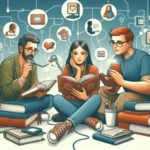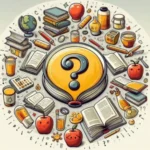In a world bustling with distractions and fleeting attention spans, the age-old practice of reading often gets overshadowed by the allure of screens and instant gratification.
Yet, within the pages of a book lies a transformative power that has the potential to shape our thoughts, broaden our perspectives, and ultimately make us better individuals. From classic literature that delves into the complexities of the human experience to self-help guides that inspire personal growth, reading offers an unparalleled journey into the minds and hearts of others. But can the simple act of immersing oneself in a story or learning from a well-crafted argument truly foster empathy, enhance critical thinking, and cultivate kindness? In this blog post, we will explore the profound impact that reading can have on our character, relationships, and worldview, revealing how the written word can ignite positive change within us and in the world around us. Join us as we delve into the pages of possibility and discover how books can not only entertain but also enlighten and elevate our very humanity.
1. Introduction: The Impact of Reading on Personal Growth

In a world saturated with fast-paced information and fleeting distractions, the transformative power of reading stands as a beacon of enlightenment and growth. Books have long been revered not just as sources of entertainment, but as profound tools for personal development. When we immerse ourselves in the pages of a well-crafted narrative or the insights of a thought-provoking essay, we embark on a journey that transcends our immediate surroundings. Each book opens a portal to new perspectives, broadening our understanding of the world and ourselves.
Reading fosters empathy, allowing us to inhabit the lives of diverse characters and cultures, thereby enhancing our ability to connect with others. It encourages critical thinking by challenging us to question our beliefs and consider alternative viewpoints, ultimately fostering a more nuanced worldview. As we explore the complexities of human experience through literature, we gain insights that can inspire us to lead more compassionate and fulfilled lives.
Moreover, the act of reading itself cultivates discipline and focus, skills that are increasingly rare in our digital age. By dedicating time to engage with a book, we practice mindfulness and present-moment awareness, creating a sanctuary of calm in our often chaotic lives. This quiet reflection can lead to profound self-discovery and clarity of purpose, propelling us toward our personal goals.
In this exploration of how reading can shape our character and influence our interactions, we will delve into the myriad ways literature can serve as a catalyst for positive change. From enhancing emotional intelligence to inspiring altruistic behavior, the impact of reading on personal growth is nothing short of transformative. As we turn each page, we not only uncover the stories of others but also the potential for our own evolution.
2. The Science Behind Reading and Empathy
When we delve into the world of literature, we embark on a journey that extends far beyond the pages of a book. The science behind reading reveals a fascinating link between literature and the development of empathy, a crucial component of our emotional intelligence. Numerous studies have shown that engaging with fiction—particularly narratives that delve deep into the lives and thoughts of characters—can significantly enhance our ability to understand and relate to the feelings of others.
Research conducted by psychologists has demonstrated that readers of literary fiction tend to score higher on tests measuring empathy compared to those who prefer non-fiction or genre fiction. This phenomenon occurs because literature invites readers to inhabit the minds of diverse characters, experiencing their struggles, joys, and perspectives in a profoundly intimate way. As we navigate the complexities of different lives—whether it’s a young girl facing adversity in a dystopian world or an elderly man reflecting on lost love—we are compelled to step outside our own experiences and consider the emotions and motivations of others.
Moreover, this immersive experience stimulates brain regions associated with empathy and emotional processing. When we connect with a character’s journey, our brains mirror their experiences, allowing us to better understand and empathize with people in real life. This is particularly important in today’s fast-paced, often polarized society, where the ability to empathize can foster compassion and understanding amidst differing viewpoints.
By cultivating a habit of reading diverse narratives, we not only enrich our own lives but also enhance our capacity for empathy, making us more attuned to the needs and experiences of those around us. So, the next time you pick up a book, remember that you’re not just enjoying a story; you’re also engaging in a transformative experience that can make you a better person.
3. How Books Expand Your Perspective

Books have an unparalleled ability to broaden our horizons and expand our perspectives, transporting readers to worlds, cultures, and experiences beyond their own. When you open the pages of a well-crafted narrative, you are invited to step into the shoes of characters from diverse backgrounds, each with their unique struggles, triumphs, and viewpoints. This immersion allows you to explore ideas and lifestyles that may be entirely different from your own, fostering empathy and understanding.
Consider a novel set in a war-torn country, where the protagonist faces unimaginable challenges. As you follow their journey, you gain insight into the harsh realities of survival, resilience, and hope. You might find yourself reflecting on your own life, recognizing the privileges you may take for granted, and developing a deeper appreciation for the complexities of human experience.
Non-fiction works can be equally enlightening. Whether it’s a biography that chronicles the life of a trailblazer or a sociological study that examines societal issues, these texts challenge your assumptions and encourage critical thinking. They invite you to question your beliefs and consider alternative viewpoints, promoting open-mindedness in a world that often thrives on division.
Moreover, books can serve as mirrors, reflecting our struggles and aspirations while simultaneously offering windows into the lives of others. This dual function allows readers to connect with their own emotions while gaining insight into the emotions of others, fostering a sense of shared humanity. In this way, literature becomes a powerful tool for personal growth, urging us to reconsider our biases and embrace a more nuanced understanding of the world.
In a society inundated with information, the act of reading thoughtfully can become a transformative practice. By choosing to engage with diverse authors and genres, we actively seek to expand our perspectives, breaking down barriers and cultivating a mindset that values inclusivity and empathy. Ultimately, the transformative power of reading lies not only in the stories we encounter but also in the profound impact they have on our ability to connect with others and navigate the complexities of life.
4. The Role of Fiction in Developing Emotional Intelligence
Fiction has a remarkable ability to transport readers into the minds and hearts of characters, offering a unique lens through which we can explore the complexities of human emotion and experience. When we engage with a well-crafted story, we don’t just passively consume information; we actively immerse ourselves in the lives of others, encountering their struggles, triumphs, and vulnerabilities. This immersive experience is a powerful catalyst for developing emotional intelligence—the capacity to recognize, understand, and manage our own emotions while empathizing with the feelings of others.
Through fiction, readers are exposed to a diverse array of perspectives and emotional landscapes. Whether it’s the quiet resilience of a protagonist facing adversity or the heart-wrenching journey of a character grappling with loss, each narrative invites us to step outside our own realities and consider the motivations and emotions that drive others. This process fosters empathy, as we learn to appreciate the nuances of human behavior and the myriad factors influencing individual choices and actions.
Moreover, fiction often challenges readers to confront uncomfortable truths about society and human nature. Novels that tackle themes such as injustice, love, betrayal, and redemption encourage us to reflect on our own values and beliefs, prompting personal growth and a deeper understanding of what it means to be human. The emotional journeys depicted in these stories can resonate profoundly, allowing readers to process their own feelings and experiences in a safe and constructive way.
In essence, fiction serves as an emotional gym, where readers can exercise their empathy and refine their emotional responses. Engaging with narratives that explore the depth of human emotion not only enhances our capacity for compassion but also equips us with valuable skills for navigating our own relationships and interactions. As we turn the pages of these stories, we not only become better readers but also better individuals—more in tune with ourselves and more attuned to the world around us.
5. Non-Fiction Books: Gaining Knowledge and Wisdom

Non-fiction books hold a treasure trove of knowledge and wisdom, offering insights that can profoundly influence our lives. Unlike fiction, which allows us to escape into imaginative worlds, non-fiction grounds us in reality, presenting facts, theories, and personal anecdotes that can reshape our understanding of the world. By engaging with diverse non-fiction genres—be it biographies, self-help, history, or science—we open ourselves to new perspectives and ideas that challenge our preconceptions.
For instance, reading a well-researched biography of a great leader can inspire us to adopt their resilience and vision in our own lives. A compelling self-help book can provide practical tools for personal development, helping us navigate challenges and foster healthier relationships. Meanwhile, delving into historical accounts can broaden our understanding of societal issues, encouraging empathy and a sense of responsibility toward our communities.
Moreover, the act of reading itself cultivates critical thinking and analytical skills. As we digest complex concepts and arguments, we learn to evaluate information critically, discern biases, and make informed decisions. This intellectual engagement not only enriches our knowledge base but also empowers us to contribute thoughtfully to conversations and societal discourse.
Ultimately, non-fiction books serve as catalysts for growth, encouraging us to reflect on our values and aspirations. They challenge us to apply the wisdom we gain to our daily lives, fostering a continuous cycle of learning and self-improvement. By embracing the transformative power of non-fiction, we can embark on a journey toward becoming not just better readers, but better individuals—more informed, compassionate, and engaged in the world around us.
6. Reading as a Tool for Self-Reflection and Awareness
Reading serves as a profound tool for self-reflection and awareness, allowing us to explore the depths of our own thoughts, emotions, and aspirations. When we dive into the pages of a book, we are not merely absorbing information; we are engaging in a dialogue with the author’s ideas while simultaneously initiating a conversation with ourselves. This introspective journey can illuminate aspects of our personality that we may not have previously acknowledged.
As we encounter diverse perspectives and experiences through literature—whether it’s a moving memoir, a thought-provoking novel, or an insightful essay—we begin to see the world through different lenses. This exposure can prompt us to question our beliefs, challenge our preconceived notions, and ultimately foster a greater understanding of our values and motivations. For instance, a character’s struggle with identity may resonate with our own experiences, urging us to reflect on our journey of self-discovery.
Moreover, reading can enhance our emotional intelligence by allowing us to empathize with others. As we navigate the complexities of different characters’ lives, we cultivate a deeper sense of compassion, learning to appreciate the challenges and triumphs of those around us. This newfound empathy can lead to more meaningful interactions in our own lives, transforming us into better friends, partners, and community members.
In our fast-paced, distraction-filled world, carving out time for reading can feel like a luxury. Yet, making this commitment provides an invaluable opportunity for personal growth. By regularly engaging with literature, we not only gain knowledge but also develop a keener awareness of ourselves and those we share the world with. Thus, reading becomes not just a pastime, but a transformative practice that enriches our lives and shapes us into better individuals.
7. The Connection Between Reading and Critical Thinking Skills

The connection between reading and critical thinking skills is profound and multifaceted. When we immerse ourselves in a book, we are not just passively absorbing information; we are actively engaging with ideas, dissecting arguments, and evaluating narratives. This intellectual exercise demands that we analyze characters’ motivations, assess the validity of presented facts, and question the underlying assumptions of various viewpoints.
As we navigate through different genres and styles, from complex philosophical texts to gripping fictional tales, our minds are continually challenged to think beyond the surface. Each page turned invites us to draw connections, identify patterns, and develop our own insights, honing our analytical skills in the process.
Moreover, reading diverse authors exposes us to a multitude of perspectives, allowing us to practice empathy and consider viewpoints that may differ from our own. This not only enhances our understanding of complex social issues but also fosters a more nuanced approach to problem-solving. The more we read, the better equipped we become to navigate the complexities of our world, making informed decisions and engaging in thoughtful discourse.
In essence, reading serves as a gym for our minds, where critical thinking skills are developed and sharpened. Each book is a new workout, pushing us to think deeper, question more, and understand better. By cultivating these skills through reading, we not only become better individuals but also contribute positively to society, armed with the ability to think critically and engage meaningfully with the world around us.
8. Transformative Stories: Case Studies of Personal Change
### Transformative Stories: Case Studies of Personal Change
Throughout history, countless individuals have documented their journeys of transformation sparked by the written word. These case studies serve as powerful reminders of how stories can resonate deeply, inspire action, and catalyze profound personal change.
Take the story of John, a once-downtrodden corporate employee who stumbled upon Viktor Frankl’s *Man’s Search for Meaning* during a particularly challenging period in his life. Frankl’s insights into finding purpose amidst suffering ignited a spark within John. He began to reevaluate his own life choices and ultimately decided to leave behind the security of his corporate job to pursue a career in counseling. Today, he helps others navigate their struggles, turning his own pain into a source of strength for those who need it most.
Then there’s Sarah, who, after reading *The Gifts of Imperfection* by Brené Brown, embarked on a journey of self-acceptance and vulnerability. Initially plagued by insecurities, Sarah discovered the importance of embracing her imperfections and sharing her authentic self. This shift not only improved her mental health but also transformed her relationships. Empowered by her newfound confidence, she now leads workshops aimed at encouraging others to embrace their authentic selves, thus creating a ripple effect of positivity and openness.
Lastly, consider the story of Amir, who found solace in *The Alchemist* by Paulo Coelho. Struggling with a lack of direction in his life, the tale of Santiago’s quest for his personal legend resonated deeply with him. Inspired by the protagonist’s journey, Amir set off on his own adventure, traveling to new countries and immersing himself in diverse cultures. Through these experiences, he gained a broader perspective on life and ultimately returned home with a clearer vision of his passion for social entrepreneurship, determined to make a difference in his community.
These transformative stories highlight a common thread: the ability of literature to ignite change. Whether through self-reflection, the courage to pursue new paths, or the drive to connect with others, books have the power to shape our identities and influence our actions in ways we may not even fully understand. As we immerse ourselves in the lives of characters and the wisdom of authors, we open ourselves to the possibility of transformation, reinforcing the notion that yes, books can indeed make us better people.
9. Building a Diverse Reading List: The Importance of Variety
Building a diverse reading list is not just about expanding your bookshelf; it’s about enriching your mind and shaping your perspective. In a world that thrives on differences—be it culture, ideology, or experience—a varied selection of books allows you to step into the shoes of others and view the world through their eyes. This practice cultivates empathy, a quality that is fundamental to personal growth and interpersonal relationships.
Imagine picking up a memoir from a marginalized community, a classic novel that challenges societal norms, or a scientific text that offers insights into the human condition. Each of these genres and perspectives contributes to a well-rounded understanding of the complexities of life. For instance, fiction can ignite your imagination and introduce you to characters whose experiences are vastly different from your own, while non-fiction can ground you in reality, offering facts and insights that provoke thought and inspire action.
Moreover, reading across genres—from poetry to biographies to speculative fiction—encourages critical thinking. You start to see patterns and contrasts, allowing you to form your own opinions and challenge preconceived notions. A diverse reading list invites discussions that can lead to personal reflection and, ultimately, transformation.
Incorporating books from various authors, cultures, and perspectives not only broadens your knowledge but also fosters a deeper appreciation for the rich tapestry of human experiences. This variety holds the key to unlocking a more compassionate understanding of the world, helping you become a better, more informed person. So, as you curate your reading list, remember to celebrate diversity. Each book is a door to a new world, waiting to expand your horizons in ways you never imagined.
10. The Ritual of Reading: Creating a Habit for Growth
The Ritual of Reading: Creating a Habit for Growth
In a world filled with distractions, establishing a reading ritual can be a transformative experience that nurtures personal growth and self-improvement. The act of setting aside dedicated time for reading not only cultivates a deeper connection with the material but also fosters a sense of discipline and commitment to lifelong learning.
Imagine carving out a cozy nook in your home, adorned with soft lighting and your favorite blanket, where you can retreat and immerse yourself in the written word. Perhaps you choose the early morning hours, sipping on a warm cup of coffee as the world awakens around you. Or maybe it’s in the evening, when the day’s chaos settles, and you can escape into the pages of a book that stirs your imagination. Whatever time you choose, consistency is key.
By treating reading as a ritual rather than a mere pastime, you signal to yourself that this time is sacred—an opportunity to explore new ideas, challenge your perspectives, and grow as an individual. Consider setting a specific reading goal, such as a chapter a day or a certain number of books per month. This kind of structure not only keeps you accountable but also allows you to track your progress and celebrate your achievements, no matter how small.
Furthermore, integrating reflection into your reading ritual can amplify its benefits. After finishing a book, take a moment to jot down your thoughts, insights, and whether any concepts resonate with your own life experiences. This practice of introspection can deepen your understanding and encourage you to apply what you’ve learned in practical ways.
By creating a habit of reading, you equip yourself with a powerful tool for personal growth. Each book you delve into becomes a stepping stone towards a richer, more empathetic existence. As you immerse yourself in the stories and wisdom of others, you not only expand your knowledge but also cultivate a greater capacity for compassion, understanding, and connection with those around you. In this way, reading transcends mere entertainment; it becomes a vital ritual that shapes you into a better version of yourself.
11. How to Choose Books that Inspire Change
Choosing books that inspire change is a deeply personal journey, one that can significantly impact your growth and perspective. With countless titles available, the key is to seek out literature that resonates with your values, challenges your beliefs, and sparks curiosity about the world around you. Here are some strategies to help you curate a transformative reading list.
First, consider your interests and areas where you seek improvement. Are you looking to develop empathy? Explore books that delve into the human experience, such as memoirs or novels that offer diverse perspectives. Works like “The Glass Castle” by Jeannette Walls or “Educated” by Tara Westover provide raw and powerful narratives that can cultivate compassion and understanding.
Next, don’t shy away from tackling difficult subjects. Books that confront uncomfortable truths can be incredibly enlightening. Titles like “The Hate U Give” by Angie Thomas or “Just Mercy” by Bryan Stevenson shine a light on social justice issues, prompting readers to reflect on their roles in society and inspiring them to advocate for change.
Additionally, seek out literature that offers actionable insights. Self-help or personal development books, such as “Atomic Habits” by James Clear or “Daring Greatly” by Brené Brown, provide practical strategies for making positive changes in your life. These books not only inspire but also equip you with the tools to apply new concepts in real-world scenarios.
Lastly, consider joining a book club or engaging in discussions with others who share your passion for reading. This communal aspect can enrich your understanding and provide multiple viewpoints on the same material, deepening the impact of your reading experience.
By thoughtfully selecting books that resonate with you, challenge your worldview, and foster a spirit of inquiry, you can embark on a transformative journey that not only enhances your understanding of yourself and others but ultimately makes you a better person.
12. The Community Aspect: Joining Book Clubs and Discussions
The transformative power of reading extends beyond the pages of a book; it blossoms within the community that surrounds it. Joining book clubs and engaging in discussions can significantly enhance your reading experience and foster personal growth in ways you might never have anticipated. Picture gathering with a diverse group of individuals, all brought together by a shared passion for literature. Each member brings their unique perspectives, interpretations, and life experiences, enriching the conversation and allowing you to see the story through a kaleidoscope of viewpoints.
Book clubs serve as a safe space for open dialogue where you can express your thoughts and feelings about the book, delve into the characters’ motivations, and explore the underlying themes in a supportive environment. These discussions often spark deeper reflections about your own beliefs and values, prompting you to question and reassess your viewpoints. For instance, a novel that tackles complex social issues may inspire discussions that lead you to become more empathetic and socially aware, encouraging you to take action in your community.
Moreover, the friendships formed in these literary circles can be incredibly fulfilling. As you bond over shared reads, you create lasting connections that extend beyond the realm of books. The camaraderie fostered in these groups can provide emotional support, inspiration, and motivation, enhancing your overall well-being. Whether it’s a cozy gathering at someone’s home or a virtual meeting with members from around the globe, the community aspect of book clubs is a powerful reminder that reading is not just a solitary activity but a means of building relationships and understanding the human experience.
Additionally, engaging in discussions about books can refine your communication skills. Articulating your thoughts clearly and listening to others fosters a respectful exchange of ideas. This skill is invaluable, not just in literary discussions, but in all aspects of life, from professional settings to personal relationships. Ultimately, immersing yourself in a community of readers not only deepens your appreciation for literature but also cultivates a more compassionate and engaged version of yourself, making it an essential part of the transformative journey that reading offers.
13. Overcoming Barriers to Reading: Time, Accessibility, and Motivation
In a world where time seems to slip through our fingers and distractions abound, many potential readers find themselves grappling with the barriers that stand between them and the transformative power of books. Overcoming these obstacles—time, accessibility, and motivation—can unlock a wealth of personal growth and insight that reading offers.
**Time** is often cited as the most significant hurdle. With the demands of work, family, and social obligations, finding moments to delve into a book can feel impossible. However, it’s essential to shift our perspective on reading time. Instead of viewing it as an all-or-nothing endeavor, consider integrating reading into your daily routine in bite-sized pieces. Whether it’s sneaking in a few pages during your morning coffee, listening to an audiobook during your commute, or dedicating just ten minutes before bed, small, consistent doses of reading can lead to significant transformation over time.
**Accessibility** is another barrier that can deter aspiring readers. Not everyone has easy access to physical books, whether due to financial constraints, geographical limitations, or even physical disabilities. Fortunately, the digital age has expanded the landscape of reading. E-books and online libraries have made literature more accessible than ever, allowing readers to download a vast array of titles at little to no cost. Additionally, audiobooks cater to those who may struggle with traditional reading, offering an engaging alternative that can be enjoyed while multitasking.
Finally, there’s **motivation**, which can wane when faced with the myriad of choices available. With so many genres, authors, and styles, it’s easy to feel overwhelmed or uncertain about where to start. To combat this, set personal reading goals that resonate with your interests and aspirations. Joining a book club or participating in reading challenges can also provide a sense of community and accountability, fueling your motivation. Remember, the journey of reading is personal; allow yourself the freedom to explore different genres, revisit beloved books, and engage with stories that ignite your passion.
By addressing these barriers head-on, you can cultivate a richer reading experience that empowers you to grow and evolve. The keys to unlocking the transformative power of reading lie in your hands—embrace the journey, and watch as books illuminate your path to becoming a better person.
14. Conclusion: Embracing the Lifelong Journey of Reading
In a world that constantly demands our attention, the act of reading stands as a sanctuary—a timeless refuge where we can explore, reflect, and grow. As we conclude our exploration of the transformative power of reading, it becomes clear that engaging with books is not merely a pastime; it’s a profound journey that shapes our values, broadens our perspectives, and deepens our understanding of humanity.
Embracing reading as a lifelong journey means recognizing that each book opens a new door to experiences and insights. From classic literature that delves into the complexities of the human condition to modern narratives that challenge societal norms, the pages of a book can spark empathy, encourage critical thinking, and inspire change. Each story, whether fiction or non-fiction, contributes to the mosaic of our understanding, allowing us to walk in the shoes of others and reflect on our own lives.
Moreover, as we cultivate a reading habit, we foster a sense of curiosity and a thirst for knowledge that transcends the written word. This journey encourages us to seek out diverse voices and narratives, enriching our lives with a tapestry of cultures, ideas, and philosophies. In doing so, we enhance our emotional intelligence and develop a deeper appreciation for the complexity of the world around us.
So, as you close the cover on this discussion, remember that the journey of reading is never truly finished. Each book you pick up is a new opportunity for growth, a chance to challenge your beliefs, and a way to become a better version of yourself. Embrace this journey with open arms, for the transformative power of reading is boundless, and the benefits extend far beyond the pages. Let the stories you encounter shape your perspectives, inspire your actions, and ultimately guide you toward becoming a more compassionate and enlightened individual. The adventure awaits—dive into your next book and let the transformation begin.
15. Call to Action: Start Your Transformative Reading Journey Today!
Now that we’ve explored the profound impact reading can have on personal growth and transformation, it’s time for you to embark on your own journey. Imagine the possibilities that await you as you turn the pages of a book, stepping into new worlds, challenging your perspectives, and nurturing your empathy. Whether you’re drawn to fiction that ignites your imagination or non-fiction that equips you with actionable knowledge, there’s a wealth of literature just waiting to be discovered.
To get started, take a moment to reflect on what resonates with you. Are you interested in stories that inspire courage, self-discovery, or resilience? Or perhaps you seek out wisdom on leadership, mindfulness, or emotional intelligence? Whatever your interests, begin by selecting a book that speaks to your heart and mind.
Set aside dedicated time each day to immerse yourself in your chosen read. Create a cozy nook in your home where you can escape into the pages, free from distractions. You can also join a book club or online reading community to share insights and foster discussions with like-minded individuals. Engaging with others will enrich your experience and expand your understanding of the material.
Remember, the journey of transformation through reading is not a sprint but a marathon. Allow yourself the grace to digest and reflect on the ideas presented within those pages. Take notes, underline passages that resonate, and consider how you can apply the lessons learned to your life.
So, what are you waiting for? Grab that book you’ve been eyeing, start flipping those pages, and watch as your perspective shifts, your empathy deepens, and your understanding of the world expands. The transformative power of reading is at your fingertips—seize it today!
As we conclude our exploration of the transformative power of reading, it’s clear that books hold an incredible potential to shape not only our minds but also our character. The stories we immerse ourselves in can broaden our perspectives, deepen our empathy, and inspire us to become more compassionate individuals. By engaging with diverse narratives and ideas, we foster a greater understanding of the world and those around us. So, whether it’s through a gripping novel, an enlightening biography, or a thought-provoking essay, we encourage you to pick up a book and let it lead you on a journey of self-discovery and growth. Remember, every page turned is a step toward becoming a better version of yourself. Happy reading!






